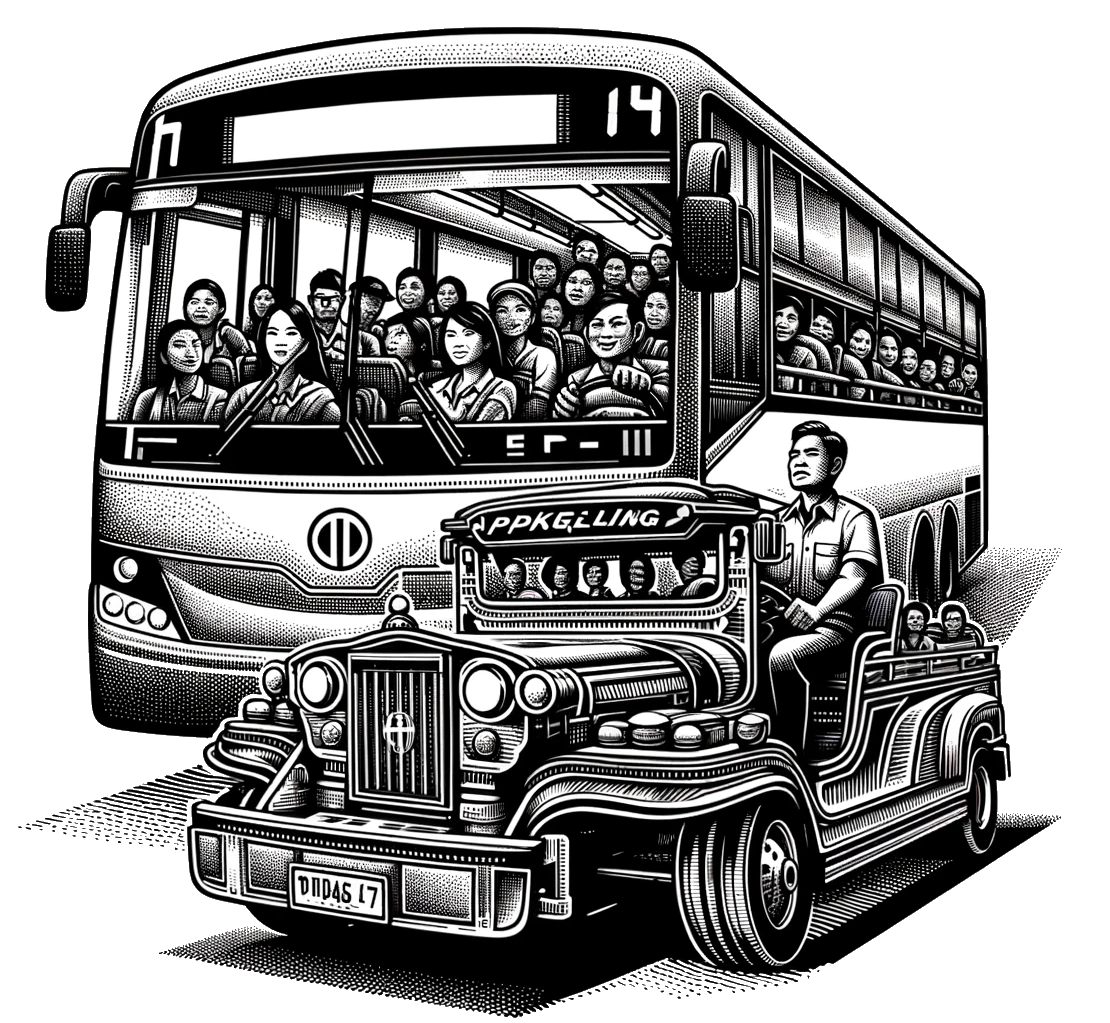This Philippine and international co-operative news round-up is brought to you by The New Co-operator, ‘The frontpage of the co-operative web.’ For more information, visit The New Co-operator.
The Cooperative Development Authority has been working hard to assist drivers and operators, helping them organize into cooperatives, guiding them through various requirements to make their registration process easier. Under the PUV modernization program, operators and drivers are being organized into cooperatives to enhance the efficiency of operations.
To address financial needs for modernization, the CDA links operators with government banks such as the Development Bank of the Philippines (DBP) and the Land Bank of the Philippines, which can provide necessary funding.
International and Philippine Cooperative News Round-Up
- The Cooperative Development Authority (CDA) is actively supporting cooperatives in the Philippines to participate in the Public Utility Vehicle (PUV) modernization program. This initiative is aimed at upgrading public transportation with more environmentally friendly and efficient vehicles.
- This effort is part of a broader collaboration with other government agencies to strengthen the management and organization of transport service cooperatives, ensuring a more effective and modernized public transportation system.
For more detailed information, you can read the full article on the Philippine News Agency's website.
- Northern Luzon is witnessing a revitalization of its peanut industry, with efforts focusing on increasing production and improving quality. This development is expected to boost the local economy and provide new opportunities for farmers in the region.
- The Ilocos red peanut, a native variety grown primarily in the Ilocos and Cagayan regions of Northern Luzon, is receiving renewed attention due to increasing market demand.
- Peanuts are recognized for their versatility and are used for various purposes including food, animal fodder, solvents, oils, textile materials, cosmetics, and medicine.
- El Niño has caused significant damage to agricultural crops in Zamboanga del Norte, leading to a loss of approximately P700,000. This highlights the growing challenges faced by the agricultural sector due to climate change.
- Popular personality Heart Evangelista has been announced as the new face of GCash, a leading mobile wallet in the Philippines. This collaboration is expected to bring a fresh and engaging perspective to the brand.
- Coins.ph, a prominent financial technology company in the Philippines, is expanding its services globally by offering a cryptocurrency option for overseas remittances. This move is poised to make international transactions more accessible and efficient.
- Following its success in the Philippines, Coins.ph is set to expand its operations to Europe and Latin America.
- eFishery, an aquaculture startup, plans to export more than 10,000 tons of shrimp to the United States in 2024.
- One ton is equivalent to 1,000 kilograms. Therefore, 10,000 tons would be equivalent to 10,000,000 kilograms. When it comes to eFishery's plan to export shrimp to the United States, this would amount to approximately 833,333 kilograms per month.
- A "unicorn" in the context of business and startups refers to a privately held startup company valued at over $1 billion. The term was coined in 2013 by venture capitalist Aileen Lee, choosing the mythical animal to represent the statistical rarity of such successful ventures.
- eFishery is an Indonesian-based startup, headquartered in Bandung, West Java, Indonesia. It was founded by Gibran Huzaifah Amsi El Farizy.
For more information about eFishery, you can visit their official website.
- REI Co-op announced the layoff of 357 non-store employees amidst forecasts of revenue decline in 2024. This decision reflects the challenges faced by retail companies in adapting to the changing economic landscape.
- As for the biggest challenge faced by retail companies in adapting to the changing economic landscape, it generally includes navigating the shift towards online shopping, adapting to new consumer behaviors and preferences, dealing with supply chain disruptions, and managing the impact of economic fluctuations. These challenges require retail companies to be more agile, innovative, and customer-focused than ever before.
- REI (Recreational Equipment, Inc.) is not primarily an online shopping company; it is a well-known American retail and outdoor recreation services corporation. Founded in 1938 by Lloyd and Mary Anderson in Seattle, Washington, REI started as a cooperative to help outdoor enthusiasts obtain quality climbing gear at reasonable prices. Over the years, REI has grown into a national chain, offering a wide range of outdoor gear and clothing for camping, cycling, fitness, hiking, and more. It operates as a consumer cooperative, meaning it is owned by its members who pay a one-time membership fee and in return receive a portion of the profits through an annual dividend.
- REI's biggest competitor in the outdoor and sporting goods retail sector is likely to be Dick's Sporting Goods, a chain offering a similar range of products, though it operates under a different business model, not as a cooperative.
For more detailed information you can visit the REI official website.
- The Co-op Group has set an ambitious target of reaching 8 million members by 2030. The Co-op Group currently has 5 million active member-owners.
- This substantial increase in membership is part of the Group's broader growth ambitions across its core businesses, which include Food, Funerals, Legal, and Insurance.
For more detailed information about the Co-op Group and its initiatives, you can visit their official website.
- After a remarkable 42-year career, Ali Kurji announced his retirement as the CEO of Heart of England Co-operative Society. The Heart of England Co-operative Society, established in 1832, has a rich history rooted in the democratic values of the cooperative movement.
- Originally founded as the Lockhurst Lane Industrial Co-operative Society by ribbon weavers in Coventry's Foleshill parish, the Society's aim was to provide working families with high-quality food, clothing, and other goods at affordable prices. Today, the Society operates The Co-operative Food and The Co-operative Funeralcare, with membership open to all residents of its trading area, offering a share of profits in the form of dividends.
For more information, visit the Heart of England Co-operative Society's website.


